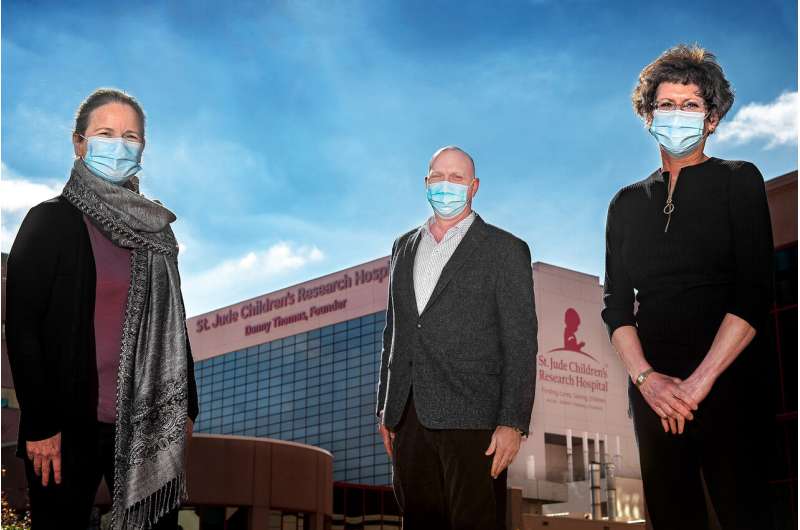Excellent outcomes reported for first targeted therapy for pediatric Hodgkin lymphoma


Scientists are reporting results of the first frontline clinical trial to use targeted therapy to treat high-risk pediatric Hodgkin lymphoma. The study showed that the addition of brentuximab vedotin achieved excellent outcomes, reduced side effects, and allowed for reduced radiation exposures.
The study was the result of work by a multi-site consortium dedicated to pediatric Hodgkin-lymphoma. Collaborating institutions include St. Jude Children’s Research Hospital, Stanford University School of Medicine, Dana-Farber Cancer Institute, Massachusetts General Hospital, Maine Children’s Cancer Program and OSF Children’s Hospital of Illinois.
A paper detailing the findings was published today in the Journal of Clinical Oncology.
A new kind of therapy
Brentuximab vedotin is an anti-CD30 antibody drug conjugate. The drug, which is already approved to treat adults with Hodgkin lymphoma, is targeted specifically to Hodgkin Reed Sternberg cells (cancer cells in Hodgkin lymphoma). Brentuximab vedotin delivers the medicine directly where it is needed.
“I think of brentuximab vedotin as a smart drug,” said first and corresponding author Monika Metzger, M.D., St. Jude Departments of Oncology and Global Pediatric Medicine. “Unlike conventional chemotherapy, which can have wide-ranging effects on all cells of the body, this drug knows to go directly to the Hodgkin lymphoma cells—maximizing its effect while minimizing side effects.”
This phase 2 clinical trial replaced the chemotherapy drug vincristine with brentuximab vedotin in the frontline (first therapy given) treatment regimen. The regimen included other chemotherapy agents and radiation when needed. Vincristine is associated with neuropathy. Removing it from the regimen resulted in patients reporting a reduction in this symptom.
Overall three-year survival for the trial was 99%. Of the 77 patients enrolled in the study, 35% were spared radiation. When radiation was needed, it was precisely tailored, and doses were reduced when possible.
“We have already reduced the use of radiation for low-risk Hodgkin lymphoma patients. In this study we’ve shown that it is also possible to either omit or reduce the extent of radiation for high-risk patients, using highly focal methods such as proton beam radiation or intensity modulated radiation,” said co-senior author Matthew Krasin, M.D., St. Jude Department of Radiation Oncology.
The researchers concluded that brentuximab vedotin in the frontline treatment of pediatric high-risk Hodkgin lymphoma is tolerable, reduced radiation exposure and produced excellent outcomes. Brentuximab vedotin is currently being incorporated into other national trials for the care of pediatric patients with Hodgkin lymphoma.
Source: Read Full Article